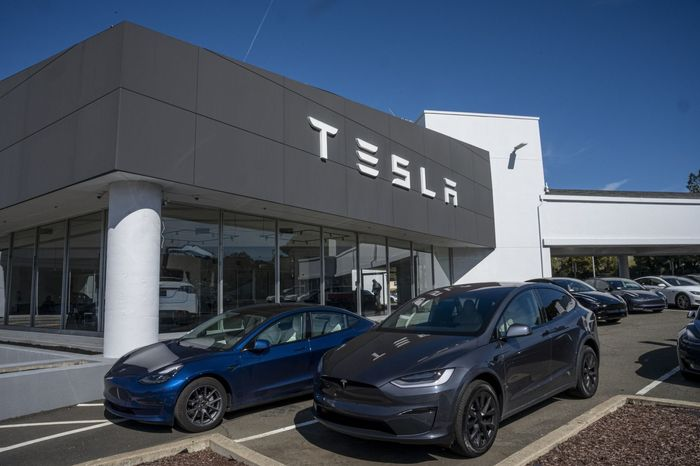Shares of Tesla (TSLA:NASDAQ) FINISHED 9.75% lower, a day after the company reported declining earnings and margins from recent price cuts implemented to fuel demand.
Tesla had earnings per share of $0.85, while revenue for the quarter was $23.33 billion. Tesla said net income fell 24% to $2.51 billion, or 73 cents a share, from $3.32 billion, or 95 cents a share, a year ago, while its operating margin fell to 11.4% from 19.2% a year earlier.
Amid rising interest rates and competition, Tesla has dropped prices for its U.S. models by 14% to 25% this year in a bid to stave off weakening demand. Tesla models sold for an average of $46,000 in the first quarter, below the company’s forecast and down from about $52,000 in the same quarter last year.
The company specified in a shareholder deck that “underutilization of new factories” stressed margins, along with higher raw material, commodity, logistics and warranty costs, and lower revenue from environmental credits, all contributing to the drop in earnings from last year.
Automotive revenue, Tesla’s core segment, reached $19.96 billion in the quarter, up 18% from last year. Total revenue rose 24%. Revenue from automotive regulatory credits during the first three months of 2023 amounted to $521 million, down from $679 million in the first quarter of last year.
On an earnings call, CEO Elon Musk emphasized an “uncertain” macroeconomic environment that could impact people’s car-shopping plans. During a question-and-answer session with analysts, Musk said he expected 12 months of “stormy weather” in the economy.
He cautioned that, “Every time that the Fed raises interest rates, that’s the equivalent to an increase in the price of a car.” He also said, whenever there’s uncertainty in the economy, people will generally postpone “big new capital purchases like a new car.”
“We’ve taken a view that pushing for higher volumes and a larger fleet is the right choice here, versus a lower volume and higher margin,” Musk said. He however noted that he expects Tesla vehicles “over time will be able to generate significant profit through autonomy.”
Elon Musk said that Tesla’s aggressive approach to pricing is here to stay and that the company is prepared to keep pushing for higher volumes at the expense of margins. This approach raised concern among several Wall Street analyst firms prompting them to cut their price targets for the company.
Tesla shares started slipping in off-hour trading immediately after the report and continued to slump before the opening bell. They fell to $163.38 in recent trading. The shares have fallen nearly 50% over the past 12 months, but are still trading more than one-third higher than where they started 2023.
Tesla’s share slump weighed on other auto stocks . Shares of Ford (F:NYSE) and General Motors (GM:NYSE) were each down nearly 4%, while shares of NIO (NIO:NASDAQ) and Rivian (RIVN:NASDAQ) were off by 5.8% and 3.67% respectively.
J.P. Morgan (JPM:NYSE) analysts cut their price target for the stock. Rather than managing supply to track demand at a stable price level, which could help the company hit its profitability targets, Tesla instead seems to be focused on toggling prices to put demand in lockstep with its production ramp-up at new factories in Berlin and Austin, Texas, the analysts said.
“Tesla strikes us as an automaker intent on producing as many vehicles as it is able, readily willing to trade profits for sales,” they said.
However, Tesla’s decline in margins wasn’t entirely driven by price cuts—higher costs continue to be an overhang, too. The number of vehicles Tesla sold during the quarter rose by more than one-third, but the cost of those vehicles rose even higher. The company expects those costs to moderate as it increases capacity at its new factories and the price of lithium comes down.

